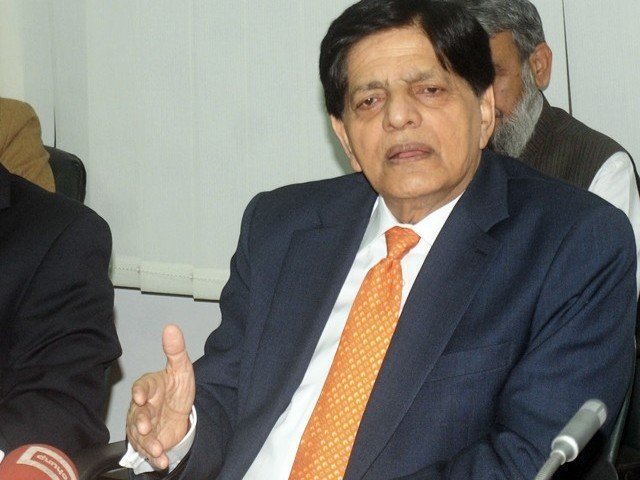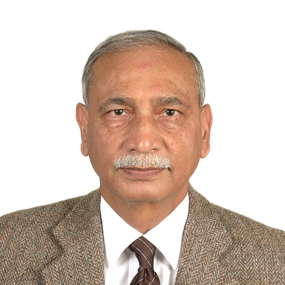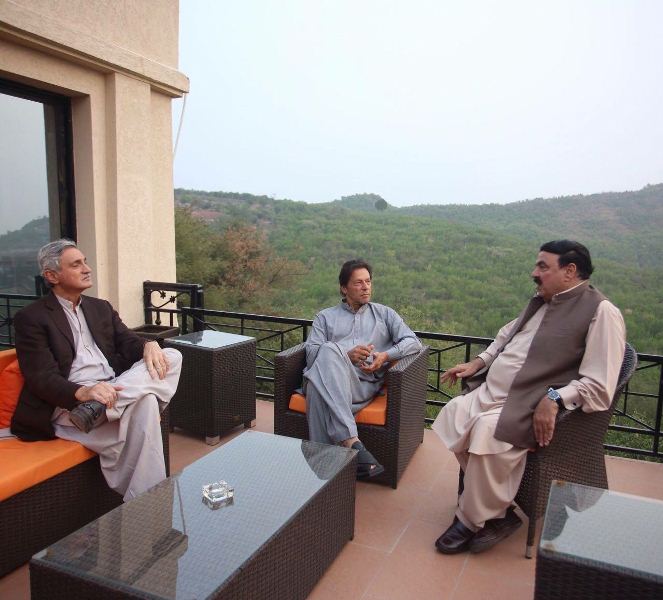One of the central problems of Imran Khan’s government is the quality and commitment of his range of advisers, not only for day to day politics but for both aside short and long-term decision-making process. The PM has been more than once given the perception of making off the cuff decisions in his pronouncements in his speeches and interviews. Even good advisers do not matter until there is a due process for diligence and analysis to not only sort out facts from fiction but separate emotions from reality.
Recently Imran Khan stated that the army supported PTI’s manifesto and that the CJP laid the foundation for NAYA PAKISTAN with his Panama case verdict. These are home truths which have now been inadvertently politicised. He followed it up by giving hints about mid-term elections only a 100 days plus after taking over the government, that gives a perception of insecurity. Seeing these and other mismanaged occasions one is tempted to say, with such advice proliferating who needs enemies? God, the judiciary and the Army saved us from the Sharif family, they will Inshallah rid us of Zardari and his cronies sooner than later. Why is Imran hell-bent on resurrecting them politically?
Some of his advisers are certainly dyed in the wool professionals, however some in his inner circle are lightweights. No head of any government in the world can rule only according to his/ her own knowledge and experience. Governing is a team work and while a politician may be quite educated and well-informed, he like most individuals lack detailed knowledge in specialized fields. Even more than specialized knowledge and a good gut feeling the main basis for efficient cooperation between politician and adviser is sincerity of intentions and honesty of both coupled with their trust in each other. Such a relationship has to grow and be nurtured. Such a mentor or guide is typically part and parcel of the leadership inner circle, having specific skills and knowledge and the ability to impart sound and sane advice. With specialisation and innovation advisers are now an integral part of businesses, financial institutions, educational institutions, legal firms, insurance houses, govts, etc. They are also part of the decision-making processes of various Ministries.
For the Prime Minister (PM), the President or whoever at that hierarchical ruling level needs to make sound decisions, information must be synthesized rapidly and a comprehensive understanding and analysis thereof developed the leader must therefore have a set of options to act upon. One idea may be to have an informal “National Security Council” (NSC) on the US pattern but tailored for Pakistan with no executive powers. Chosen with the great care and diligence, this brain trust’s driving motivation must be the country’s interest first and foremost, and thereafter the interest of their leader, and in that order. An adviser having even an iota of personal motivation or his own interest will bring about disastrous consequences for those governing in any capacity.
A look at the history of advisers, good and bad, is quite fascinating. Some famous advisers who were successful in helping their leaders achieve their aims, viz (1) Chanakhya was a master strategist and a shrewd politician who helped Chandragupta of the Maurya dynasty run his empire. His book “Arthashastra” is considered as the holy grail of Hindu politics and diplomacy (2) the Hindu adviser to Mughal Emperor Akbar, Birbal’s, wisdom was unparalleled, he was known for his wit and innovative solutions to many problems faced (3) As the Prime Minister to Wilhelm I of Prussia, and later the German Empire, Otto von Bismarck was instrumental in the unification of various German principalities into the German Empire and building its world-renowned bureaucracy and army. (4) Yelu Chucai was a trusted adviser to Genghis Khan who once ruled most of the known world. Chucai convinced the Mongols to tax conquered cities instead of destroying them as per usual practice, arguing that the money and manpower gained from the cities could fund future conquests. A common feature to good advisers was their loyalty to their sovereign, instead of being “prima donnas” their approach was low-key and behind the scenes.

Unfortunately, throughout history many advisers have also proven themselves to be neither honest nor efficient, many leaders were duped by their closest advisers. However, some rascals were indispensable to their leader if not the country. While Asif Zardari’s principal adviser on most matters, Salman Faruqui, was an out and out crook, he had deep knowledge of running of the affairs of the State and the senior DMG bureaucrats. He knew which bureaucrat was honest and who was not, guess which bureaucrats went to the lucrative Ministries where money could be made? On the other hand, he also had “horses for courses’, putting to work a bunch of excellent individuals in key slots to provide good governance. However, corruption cannot go keep on co-existing with good governance, in the end the Zardari govt failed. Nawaz Sharif used the same formula in all his terms, Shahbaz Sharif perfected it in Punjab. In the end both came to political grief.
Bureaucrats usually have their own agenda included power, some hunger for control, some for money and/ or influence. There have been others who sought to oust a leader they deemed unfit for duty. Many leaders met tragic ends at the hands of their advisers. With a naive and pious King Henry VI of England not interested in politics or state affairs, a small group of advisers took full control of the country. He was eventually declared unfit to rule by his leading relatives and advisers. Infamous mystic Rasputin won favour with Nicholas II, the last Czar of Russian and his wife, by convincing them that he had cured their son of the bleeding disorder haemophilia, which even today has no known cure. Though his political influence was relatively minor, the Czarina increasingly listened to his political counsel. This spelt ultimate disaster for the Russian monarchy.
Among those considered “Advisers” are the Military Secretary (MS) and the Political Secretary, whoever are the gatekeepers to the President or PM. Depending upon the rank that would be the ADC or PSO in the Army, God forbid if anyone runs afoul of the “gatekeepers” some of whom may be more “influencial” in day to day dealings than their boss. Being insecure some of those gatekeepers have a penchant to keep away those who could influence the mind of their bosses away from their (or their cronies) thinking. They thus insulate their boss from good advice. Ostensibly this is done to “protect” their boss from “bad news”. If someone like Imran is thus kept from the truth, like other leaders before him he will come to grief. Imran has been lucky in his immediate relatives in their not taking advantage of their closeness to him, one hopes this will persist and last.

In today’s world good advisers are even more important. Leader of consequence need sane counsel particularly in times of distress. The real question who will shortlist the right persons for such an important job? Apart from specific knowledge in a field the person needs to be honest to the core and has to share the main values of the leader who has to be a trusted colleague if not a friend. To start with Imran Khan must reach out to a half a dozen senior retired bureaucrats of known integrity and reputation. People like Tariq Khosa Tasleem Noorani, etc. would be indispensable. They must be attached with the Establishment Division to vet the senior appointments in the Ministries, some govt organisations, etc., only that way the PM can avoid gaffes in the making in the future.
Advisors of exceptional stature and competence cannot be found through tenders, they have to be companions in the political fight. Big egos are usually rather a hindrance than an asset in the search for good advisers. And while the search might take some time it makes sense to communicate within the inner circle openly and completely without personal gain in mind. This country critically need someone sincere like Imran Khan, far more than that we need to have people around him giving good advice and not pushing their personal selfish agendas and/ or half-baked policies whose backlash will cause reactions that will be bad not only for him but for the country.




